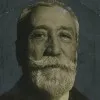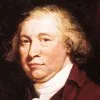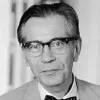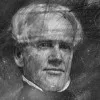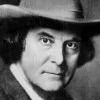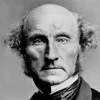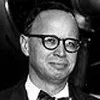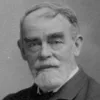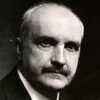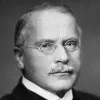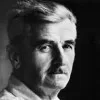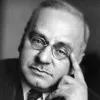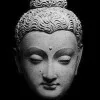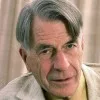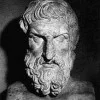If forty million people say a foolish thing it does not become a wise one, but the wise man is foolish to give them the lie.
W. Somerset Maugham (1874-1965) English novelist and playwright [William Somerset Maugham]
A Writer’s Notebook (1949)
An entry dated 1901. More discussion about this quotation: If Fifty Million People Say a Foolish Thing, It Is Still a Foolish Thing – Quote Investigator
Quotations about:
belief
Note not all quotations have been tagged, so Search may find additional quotes on this topic.
If I should try to say anew the creed of the Optimist, I should say something like this: “I believe in God, I believe in Man, I believe in the power of the spirit, I believe we should so act that we may draw nearer and more near the age when no man shall live at his ease while another suffers.”
The price of seeking to force our beliefs on others is that some day they might force their beliefs on us.
Mario Cuomo (1932-2015) American politician
“Religious Belief and Public Morality,” John A. O’Brien Lecture, U. of Notre Dame (13 Sep 1984)
(Source)
There are those who believe something, and therefore will tolerate nothing; and on the other hand, those who tolerate everything, because they believe nothing.
Robert Browning (1812-1889) English poet
(Attributed)
(Source)
Cited in Tryon Edwards, A Dictionary of Thoughts (1908 ed.).
The Old Testament is responsible for more atheism, agnosticism, disbelief — call it what you will — than any book ever written; it has emptied more churches than all the counterattractions of cinema, motor bicycle and golf course.
PETER: (baldly) You see, Wendy, when the first baby laughed for the first time, the laugh broke into a thousand pieces and they all went skipping about, and that was the beginning of fairies. And now when every new baby is born its first laugh becomes a fairy. So there ought to be one fairy for every boy or girl.
WENDY (breathlessly). Ought to be? Isn’t there?
PETER. Oh no. Children know such a lot now. Soon they don’t believe in fairies, and every time a child says ‘I don’t believe in fairies’ there is a fairy somewhere that falls down dead. (He skips about heartlessly.)
J. M. Barrie (1860-1937) Scottish novelist and dramatist [James Matthew Barrie]
Peter Pan, Act 1 (1904, pub. 1928)
(Source)
In Barrie's novelization, Peter and Wendy, ch. 3 "Come Away, Come Away!" (1911), this is rendered:“You see, Wendy, when the first baby laughed for the first time, its laugh broke into a thousand pieces, and they all went skipping about, and that was the beginning of fairies.”
Tedious talk this, but being a stay-at-home she liked it.
“And so,” he went on good-naturedly, “there ought to be one fairy for every boy and girl.”
“Ought to be? Isn’t there?”
“No. You see children know such a lot now, they soon don’t believe in fairies, and every time a child says, ‘I don’t believe in fairies,’ there is a fairy somewhere that falls down dead.”
Style has to do with the way in which ideas are believed and advocated rather than with the truth or falsity of their content.
Richard Hofstadter (1916-1970) American historian and intellectual
“The Paranoid Style in American Politics,” Herbert Spencer Lecture, Oxford (Nov 1963)
(Source)
Reprinted in Harpers (Nov 1964).Often misattributed to Douglas Hofstadter.
ABSURDITY, n. A statement or belief manifestly inconsistent with one’s own opinion.
Ambrose Bierce (1842-1914?) American writer and journalist
“Absurdity,” The Cynic’s Word Book (1906)
(Source)
Included in The Devil's Dictionary (1911).
In later versions, Bierce added:2. The argument of an opponent. A belief in which one has not had the misfortune to be instructed.
But in stating prudential rules for our government in society I must not omit the important one of never entering into dispute or argument with another. I never yet saw an instance of one of two disputants convincing the other by argument. I have seen many of their getting warm, becoming rude, & shooting one another. Conviction is the effect of our own dispassionate reasoning, either in solitude, or weighing within ourselves dispassionately what we hear from others standing uncommitted in argument ourselves.
A ginooine statesman should be on his guard,
Ef he must hev beliefs, nut to b’lieve ’em tu hard.[A genuine statesman should be on his guard,
If he must have beliefs, not to believe them too hard.]
The religion of one seems madnesse unto another.
Thomas Browne (1605-1682) English physician and author
Hydriotaphia, or Urne-Buriall, ch. 4 (1658)
(Source)
Most Mens Anger about Religion is as if two Men should quarrel for a Lady they neither of them care for.
George Savile, Marquis of Halifax (1633-1695) English politician and essayist
“Religion,” Political, Moral, and Miscellaneous Thoughts and Reflections (1750)
(Source)
The faith that stands on authority is not faith. The reliance on authority measures the decline of religion, the withdrawal of the soul.
Ralph Waldo Emerson (1803-1882) American essayist, lecturer, poet
“The Over-Soul,” Essays: First Series, ch. 9 (1841)
(Source)
Think before you speak. Read before you think. This will give you something to think about that you didn’t make up yourself — a wise move at any age, but most especially at seventeen, when you are in the greatest danger of coming to annoying conclusions.
Do not be frightened from this inquiry by any fear of its consequences. If it ends in a belief that there is no god, you will find incitements to virtue in the comfort and pleasantness you feel in its exercise, and the love of others which it will procure you. If you find reason to believe there is a God, a consciousness that you are acting under his eye, and that he approves you, will be a vast additional incitement; if that there be a future state, the hope of a happy existence in that increases the appetite to deserve it; if that Jesus was also a god, you will be comforted by a belief of his aid and love.
Thomas Jefferson (1743-1826) American political philosopher, polymath, statesman, US President (1801-09)
Letter (1787-08-10) to Peter Carr
(Source)
We who hold public office are enjoined by our Constitution against enacting laws to tell the people when or where or how to pray.
All our experience and all our knowledge proves that injunction is good. for, if government could ordain the people’s prayers, government could also ordain its own worship — and that must never be.
The separation of church and state has served our freedom well because men of state have not separated themselves from church and faith and prayer.Lyndon B. Johnson (1908-1973) American politician, educator, US President (1963-69)
Speech (1964-02-05), Presidential Prayer Breakfast, Washington, D.C.
(Source)
This was at the 12th Annual Presidential Prayer Breakfast.
In the Proceedings of the Illinois State AFL-CIO Convention (1968), there is (a) a reference to a note that the state president of the AFL/CIO, Reuben G. Soderstrom, attending the 16th such Prayer Breakfast, and then (b) a passage on the next page "U. S. President Lyndon B. Johnson's statement to a tremendous audience contained the following comment:"Our Constitution separates church and state. We know that separation is a source of our system's strength, but the conscience of our nation does not call for separation between men of state and faith in the Supreme Being.
Johnson does not appear to have included this text in his speech at the 16th Presidential Prayer Breakfast, nor does he appear to have gone to the 1968 Illinois AFL/CIO convention. Is this an odd paraphrase of the comments from four years earlier? Did Johnson speak the above in another venue that was also quoted in the Illinois AFL/CIO Convention proceedings? Is this paraphrase actually what he said in 1964, regardless of the written record of his comments?
While that shorter quote, or further paraphrases of it, are easy to find in quotation collections online, I can find no citation associated with it.
Have I ever heard a skeptic wax superior and contemptuous? Certainly. I’ve even sometimes heard, to my retrospective dismay, that unpleasant tone in my own voice. There are human imperfections on both sides of this issue. Even when it’s applied sensitively, scientific skepticism may come across as arrogant, dogmatic, heartless and dismissive of the feelings and deeply held beliefs of others. And, it must be said, some scientists and dedicated skeptics apply this tool as a blunt instrument, with little finesse. Sometimes it looks as if the skeptical conclusion came first, that contentions were dismissed before, not after, the evidence was examined. All of us cherish our beliefs. They are, to a degree, self-defining. When someone comes along who challenges our belief system as insufficiently well based — or who, like Socrates, merely asks embarrassing questions that we haven’t thought of, or demonstrates that we’ve swept key underlying assumptions under the rug — it becomes much more than a search for knowledge. It feels like a personal assault.
Carl Sagan (1934-1996) American scientist and writer
The Demon-Haunted World, ch. 17 (1995)
(Source)
Our civil rights have no dependence on our religious opinions any more than our opinions in physics or geometry.
Thomas Jefferson (1743-1826) American political philosopher, polymath, statesman, US President (1801-09)
Document (1776-06-18), “Virginia Statute for Religious Freedom,” Preamble (enacted 1786-01-16)
(Source)
Well aware that the opinions and belief of men depend not on their own will, but follow involuntarily the evidence proposed to their minds; that Almighty God hath created the mind free, and manifested his supreme will that free it shall remain by making it altogether insusceptible of restraint; that all attempts to influence it by temporal punishments, or burthens, or by civil incapacitations, tend only to beget habits of hypocrisy and meanness, and are a departure from the plan of the holy author of our religion, who being lord both of body and mind, yet chose not to propagate it by coercions on either, as was in his Almighty power to do, but to extend it by its influence on reason alone; that the impious presumption of legislators and rulers, civil as well as ecclesiastical, who, being themselves but fallible and uninspired men, have assumed dominion over the faith of others, setting up their own opinions and modes of thinking as the only true and infallible, and as such endeavoring to impose them on others, hath established and maintained false religions over the greatest part of the world and through all time ….
Thomas Jefferson (1743-1826) American political philosopher, polymath, statesman, US President (1801-09)
Document (1776-06-18), “Virginia Statute for Religious Freedom,” Preamble (enacted 1786-01-16)
(Source)
During final debate around the bill's passage:See Jefferson's discussion about a failed amendment to the preamble here.
- the first clause was struck, changing the beginning to "Whereas Almighty God ...."
- the phrase "and manifested his supreme will that free it shall remain by making it altogether insusceptible of restraint" was struck.
- the phrase "but to extend it by its influence on reason alone" was struck.
Do not think of knocking out another person’s brains because he differs in opinion from you. It would be as rational to knock yourself on the head because you differ from yourself ten years ago.
Horace Mann (1796-1859) American politician, abolitionist, education reformer
Thoughts (1867)
(Source)
A doctrine insulates the devout not only against the realities around them but also against their own selves. The fanatical believer is not conscious of his envy, malice, pettiness and dishonesty. There is a wall of words between his consciousness and his real self.
Eric Hoffer (1902-1983) American writer, philosopher, longshoreman
The Passionate State of Mind, Aphorism 68 (1955)
(Source)
Orthodoxy means not thinking — not needing to think. Orthdoxy is unconsciousness.
George Orwell (1903-1950) English writer [pseud. of Eric Arthur Blair]
Nineteen Eighty-Four, Part 1, ch. 5 [Symes] (1949)
(Source)
If your religion does not change you, then you had better change your religion.
Elbert Hubbard (1856-1915) American writer, businessman, philosopher
One Thousand & One Epigrams (1911)
(Source)
Ignorance is preferable to error, and he is less remote from the truth who believes nothing than he who believes what is wrong.
Thomas Jefferson (1743-1826) American political philosopher, polymath, statesman, US President (1801-09)
Notes on the State of Virginia, Query 6 (1782)
(Source)
Why can’t somebody give us a list of things that everybody thinks and nobody says, and another list of things that everybody says and nobody thinks?
All this was inspired by the principle — which is quite true in itself — that in the big lie there is always a certain force of credibility; because the broad masses of a nation are always more easily corrupted in the deeper strata of their emotional nature than consciously or voluntarily; and thus in the primitive simplicity of their minds they more readily fall victims to the big lie than the small lie, since they themselves often tell small lies in little matters but would be ashamed to resort to large-scale falsehoods.
We are all tattooed in our cradles with the beliefs of our tribe; the record may seem superficial, but it is indelible. You cannot educate a man wholly out of the superstitious fears which were early implanted in his imagination; no matter how utterly his reason may reject them, he will still feel as the famous woman did about ghosts, Je ne crois pas, mais je les crains, — “I don’t believe in them, but I am afraid of them, nevertheless.”
Whoever has an opinion of his own, and honestly expresses it, will be guilty of heresy. Heresy is what the minority believe; it is the name given by the powerful to the doctrine of the weak.
Robert Green Ingersoll (1833-1899) American lawyer, agnostic, orator
Lecture (1874-05-03), “Heretics and Heresies,” Free Religious Society, Kingsbury Hall, Chicago
(Source)
Collected in The Gods and Other Lectures (1876).
First, if any opinion is compelled to silence, that opinion may, for aught we can certainly know, be true. To deny this is to assume our own infallibility.
Secondly, though the silenced opinion be an error, it may, and very commonly does, contain a portion of truth; and since the general or prevailing opinion on any subject is rarely or never the whole truth, it is only by the collision of adverse opinions that the remainder of the truth has any chance of being supplied.
Thirdly, even if the received opinion be not only true, but the whole truth; unless it is suffered to be, and actually is, vigorously and earnestly contested, it will, by most of those who receive it, be held in the manner of a prejudice, with little comprehension or feeling of its rational grounds.
And not only this, but, fourthly, the meaning of the doctrine itself will be in danger of being lost, or enfeebled, and deprived of its vital effect on the character and conduct: the dogma becoming a mere formal profession, inefficacious for good, but cumbering the ground, and preventing the growth of any real and heartfelt conviction, from reason or personal experience.
John Stuart Mill (1806-1873) English philosopher and economist
On Liberty, ch. 2 “Of the Liberty of Thought and Discussion” (1859)
(Source)
Conscience can’t be compelled.
Thomas Fuller (1654-1734) English physician, preacher, aphorist, writer
Gnomologia: Adages and Proverbs (compiler), # 1144 (1732)
(Source)
Subject opinion to coercion: whom will you make your inquisitors? Fallible men; men governed by bad passions, by private as well as public reasons.
Thomas Jefferson (1743-1826) American political philosopher, polymath, statesman, US President (1801-09)
Notes on the State of Virginia, Query 17 (1782)
(Source)
Certitude is not the test of certainty. We have been cocksure of many things that were not so.
Oliver Wendell Holmes, Jr. (1841-1935) American jurist, Supreme Court Justice
“Natural Law,” Harvard Law Review (1918-11)
(Source)
Legal citation: 32 Harvard Law Review 40, 41 (1918).
But is uniformity of opinion desirable? No more than of face and stature. Introduce the bed of Procrustes then, and as there is danger that the great men may beat the small, make us all of a size, by lopping the former and stretching the latter. Difference of opinion is advantageous in religion. The several sects perform the office of a Censor morum over each other. Is uniformity attainable? Millions of innocent men, women, and children, since the introduction of Christianity, have been burnt, tortured, fined, imprisoned; yet we have not advanced one inch towards uniformity. What has been the effect of coercion? To make one half the world fools, and the other half hypocrites. To support roguery and error all over the earth.
Thomas Jefferson (1743-1826) American political philosopher, polymath, statesman, US President (1801-09)
Notes on the State of Virginia, Query 17 (1782)
(Source)
It is this belief in absolutes, I would hazard, that is the great enemy today of the life of the mind. This may seem a rash proposition. The fashion of the time is to denounce relativism as the root of all evil. But history suggests that the damage done to humanity by the relativist is far less than the damage done by the absolutist — by the fellow who, as Mr. Dooley once put it, “does what he thinks th’ Lord wud do if He only knew th’ facts in th’ case.”
Our forefathers found the evils of free thinking more to be endured than the evils of inquest or suppression. They gave the status of almost absolute individual rights to the outward means of expressing belief. I cannot believe that they left open a way for legislation to embarrass or impede the mere intellectual processes by which those expressions of belief are examined and formulated. This is not only because individual thinking presents no danger to society, but because thoughtful, bold and independent minds are essential to wise and considered self-government.
Robert H. Jackson (1892-1954) US Supreme Court Justice (1941-54), lawyer, jurist, politician
American Communications Association v. Douds, 339 U.S. 382, 442 (1950) [concurrence and dissent]
(Source)
I think it behooves us to treat our characters’ beliefs with some measure of respect, whatever he believes in. I mean I’m an atheist myself, but I don’t have to believe in Minbari to write about Minbari. I think if that person is a religious character, then you have to treat them with integrity and deal with them properly.
J. Michael (Joe) Straczynski (b. 1954) American screenwriter, producer, author [a/k/a "JMS"]
Panel Discussion, MIT, Cambridge, Massachusetts (4 May 1998)
(Source)
Faith is taking the first step, even when you don’t see the whole staircase.
You will find that the truth is often unpopular and the contest between agreeable fancy and disagreeable fact is unequal. For, in the vernacular, we Americans are suckers for good news.
Adlai Stevenson (1900-1965) American diplomat, statesman
Speech (1958-06-09), Commencement, Michigan State University
(Source)
To be effective a doctrine must not be understood, but has to be believed in. We can be absolutely certain only about things we do not understand. A doctrine that is understood is shorn of its strength.
Eric Hoffer (1902-1983) American writer, philosopher, longshoreman
True Believer: Thoughts on the Nature of Mass Movements, Part 3, ch. 13, § 57 (1951)
(Source)
My own belief is no rule for another.
John Wesley (1703-1791) English cleric, Christian theologian and evangelist, founder of Methodism
Sermon #39, “Catholic Spirit,” 1.11
(Source)
I can believe things that are true and I can believe things that aren’t true and I can believe things where nobody knows if they’re true or not. I can believe in Santa Claus and the Easter Bunny and Marilyn Monroe and the Beatles and Elvis and Mister Ed. Listen — I believe that people are perfectible, that knowledge is infinite, that the world is run by secret banking cartels and is visited by aliens on a regular basis, nice ones who look like wrinkledy lemurs and bad ones who mutilate cattle and want our water and our women. I believe that the future sucks and I believe that the future rocks and I believe that one day White Buffalo Woman is going to come back and kick everyone’s ass. I believe that all men are just overgrown boys with deep problems communicating and that the decline of good sex in America is coincident with the decline in drive-in movie theaters from state to state. I believe that all politicians are unprincipled crooks and I still believe that they are better than the alternative. I believe that California is going to sink into the sea when the Big One comes, while Florida is going to dissolve into madness and alligators and toxic waste. I believe that antibacterial soap is destroying our resistance to dirt and disease so that one day we’ll all be wiped out by the common cold like the Martians in War of The Worlds. I believe that the greatest poets of the last century were Edith Sitwell and Don Marquis, that jade is dried dragon sperm, and that thousands of years ago in a former life I was a one-armed Siberian shaman. I believe that mankind’s destiny lies in the stars. I believe that candy really did taste better when I was a kid, that it’s aerodynamically impossible for a bumblebee to fly, that light is a wave and a particle, that there’s a cat in a box somewhere who’s alive and dead at the same time (although if they don’t ever open the box to feed it it’ll eventually just be two different kinds of dead), and that there are stars in the universe billions of years older than the universe itself. I believe in a personal god who cares about me and worries and oversees everything I do. I believe in an impersonal god who set the universe in motion and went off to hang with her girlfriends and doesn’t even know that I’m alive. I believe in an empty and godless universe of causal chaos, background noise, and sheer blind luck. I believe that anyone who says that sex is overrated just hasn’t done it properly. I believe that anyone who claims to know what’s going on will lie about the little things too. I believe in absolute honesty and sensible social lies too. I believe in a woman’s right to choose, a baby’s right to live, that while all human life is sacred there’s nothing wrong with the death penalty if you can trust the legal system implicitly, and that no one but a moron would ever trust the legal system. I believe that life is a game, that life is a cruel joke, and that life is what happens when you’re alive and that you might as well lie back and enjoy it.
Neil Gaiman (b. 1960) British author, screenwriter, fabulist
American Gods, Part 2, ch. 13 [Sam] (2001)
(Source)
A man who never alters his opinion is like standing water, and breeds reptiles of the mind.
William Blake (1757-1827) English poet, mystic, artist
The Marriage of Heaven and Hell, “A Memorable Fancy” (1790)
(Source)
Believe not all thou hearest, nor speak all thou believest.
Thomas Fuller (1654-1734) English physician, preacher, aphorist, writer
Introductio ad Prudentiam, Vol. 1, # 323 (1725)
(Source)
But indeed Conviction, were it never so excellent, is worthless till it convert itself into Conduct. Nay properly Conviction is not possible ill then.
Thomas Carlyle (1795-1881) Scottish essayist and historian
Sartor Resartus, Book 2, ch. 9 (1831)
(Source)
He does not believe, that does not live according to his Belief.
Thomas Fuller (1654-1734) English physician, preacher, aphorist, writer
Gnomologia: Adages and Proverbs (compiler), # 1838 (1732)
(Source)
When I consider the Question, Whether there are such Persons in the World as those we call Witches? my Mind is divided between the two opposite Opinions; or rather (to speak my Thoughts freely) I believe in general that there is, and has been such a thing as Witchcraft; but at the same time can give no Credit to any Particular Instance of it.
Joseph Addison (1672-1719) English essayist, poet, statesman
Essay (1711-07-14), The Spectator, No. 117
(Source)
Standing in the presence of the Unknown, all have the same right to think, and all are equally interested in the great question of origin and destiny. All I claim, all I plead for, is liberty of thought and expression. That is all.
All the martyrs in the history of the world are not sufficient to establish the correctness of an opinion. Martyrdom, as a rule, establishes the sincerity of the martyr, — never the correctness of his thought. Things are true or false in themselves. Truth cannot be affected by opinions; it cannot be changed, established, or affected by martyrdom. An error cannot be believed sincerely enough to make it a truth.
Robert Green Ingersoll (1833-1899) American lawyer, agnostic, orator
“The Great Infidels” (1881)
(Source)
Formerly there were those who said: You believe things that are incomprehensible, inconsistent, impossible because we have commanded you to believe them; go then and do what is unjust because we command it. Such people show admirable reasoning. Truly, whoever is able to make you absurd is able to make you unjust. If the God-given understanding of your mind does not resist a demand to believe what is impossible, then you will not resist a demand to do wrong to that God-given sense of justice in your heart. As soon as one faculty of your soul has been dominated, other faculties will follow as well. And from this derives all those crimes of religion which have overrun the world.
[Il y a eu des gens qui ont dit autrefois: Vous croyez des choses incompréhensibles, contradictoires, impossibles, parce que nous vous l’avons ordonné; faites donc des choses injustes parce que nous vous l’ordonnons. Ces gens-là raisonnaient à merveille. Certainement qui est en droit de vous rendre absurde est en droit de vous rendre injuste. Si vous n’opposez point aux ordres de croire l’impossible l’intelligence que Dieu a mise dans votre esprit, vous ne devez point opposer aux ordres de malfaire la justice que Dieu a mise dans votre coeur. Une faculté de votre âme étant une fois tyrannisée, toutes les autres facultés doivent l’être également. Et c’est là ce qui a produit tous les crimes religieux dont la terre a été inondée.]
Voltaire (1694-1778) French writer [pseud. of Francois-Marie Arouet]
Questions sur les miracles (1765)
(Source)
Commonly translated: "Those who can make you believe absurdities can make you commit atrocities."
You can take away a man’s gods, but only to give him others in return.
Why should my freedom be governed by somebody else’s conscience?
[ἱνατί γὰρ ἡ ἐλευθερία μου κρίνεται ὑπὸ ἄλλης συνειδήσεως]
The Bible (The New Testament) (AD 1st - 2nd C) Christian sacred scripture
1 Corinthians 10:29 [NJB (1985)]
(Source)
Paul on how it's okay to eat food that others think is religiously wrong to eat (but how you shouldn't be a dick about it, either).
(Source (Greek)). Alternate translations:For why is my liberty judged of another man's conscience?
[KJV (1611)]Why should my freedom depend on somebody else’s conscience?
[JB (1966)]“Well, then,” someone asks, “why should my freedom to act be limited by another person's conscience?"
[GNT (1976)]Why should my freedom be judged by someone else’s conscience?
[CEB (2011)]For why should my liberty be subject to the judgment of someone else’s conscience?
[NRSV (2021 ed.)]
Once you touch the biographies of human beings, the notion that political beliefs are logically determined collapses like a pricked balloon.
Walter Lippmann (1889-1974) American journalist and author
A Preface to Morals, ch. 7 (1913)
(Source)
There is nothing anti-intellectual in the leap of faith, for faith is not believing without proof but trusting without reservation.
William Sloane Coffin, Jr. (1924-2006) American minister, social activist
Credo, “Faith, Hope, Love” (2004)
(Source)
Give any orthodox church the power, and to-day they would punish heresy with whip, and chain, and fire. As long as a church deems a certain belief essential to salvation, just so long it will kill and burn if it has the power. Why should the church pity a man whom her God hates? Why should she show mercy to a kind and noble heretic whom her God will burn in eternal fire? Why should a Christian be better than his God?
Robert Green Ingersoll (1833-1899) American lawyer, agnostic, orator
Lecture (1874-05-03), “Heretics and Heresies,” Free Religious Society, Kingsbury Hall, Chicago
(Source)
Collected in The Gods and Other Lectures (1876).
You cannot change the conclusion of the brain by torture; nor by social ostracism. But I will tell you what you can do by these, and what you have done. You can make hypocrites by the million. You can make a man say that he has changed his mind; but he remains of the same opinion still. Put fetters all over him; crush his feet in iron boots; stretch him to the last gasp upon the holy rack; burn him, if you please, but his ashes will be of the same opinion still.
Robert Green Ingersoll (1833-1899) American lawyer, agnostic, orator
“The Liberty of Man, Woman, and Child” (1877)
(Source)
Even if we think religion insoluble, we cannot think it irrelevant. Even if we ourselves have no view of the ultimate verities, we must feel that wherever such a view exists in a man it must be more important than anything else in him.
Gilbert Keith Chesterton (1874-1936) English journalist and writer
Heretics, ch. 20 “Concluding Remarks on the Importance of Orthodoxy” (1905)
(Source)
Men and women have been burned for thinking there is but one God; that there was none; that the Holy Ghost is younger than God; that God was somewhat older than his son; for insisting that good works will save a man without faith; that faith will do without good works; for declaring that a sweet babe will not be burned eternally, because its parents failed to have its head wet by a priest; for speaking of God as though he had a nose; for denying that Christ was his own father; for contending that three persons, rightly added together, make more than one; for believing in purgatory; for denying the reality of hell; for pretending that priests can forgive sins; for preaching that God is an essence; for denying that witches rode through the air on sticks; for doubting the total depravity of the human heart; for laughing at irresistible grace, predestination and particular redemption; for denying that good bread could be made of the body of a dead man; for pretending that the pope was not managing this world for God, and in the place of God; for disputing the efficacy of a vicarious atonement; for thinking the Virgin Mary was born like other people; for thinking that a man’s rib was hardly sufficient to make a good-sized woman; for denying that God used his finger for a pen; for asserting that prayers are not answered, that diseases are not sent to punish unbelief; for denying the authority of the Bible; for having a Bible in their possession; for attending mass, and for refusing to attend; for wearing a surplice; for carrying a cross, and for refusing; for being a Catholic, and for being a Protestant; for being an Episcopalian, a Presbyterian, a Baptist, and for being a Quaker. In short, every virtue has been a crime, and every crime a virtue. The church has burned honesty and rewarded hypocrisy. And all this, because it was commanded by a book.
Robert Green Ingersoll (1833-1899) American lawyer, agnostic, orator
Lecture (1874-05-03), “Heretics and Heresies,” Free Religious Society, Kingsbury Hall, Chicago
(Source)
Collected in The Gods and Other Lectures (1876).
Now we have come to the conclusion that every man has a right to think. Would God give a bird wings and make it a crime to fly? Would he give me brains and make it a crime to think? Any God that would damn one of his children for the expression of his honest thought wouldn’t make a decent thief. When I read a book and don’t believe it, I ought to say so. I will do so and take the consequences like a man.
If fallacies come knocking at my door,
I’d rather feed, and shelter full a score,
Than hide behind the black portcullis, doubt,
And run the risk of barring one Truth out.And if pretension for a time deceive,
And prove me one too ready to believe,
Far less my shame, than if by stubborn act,
I brand as lie, some great colossal Fact.Ella Wheeler Wilcox (1850-1919) American author, poet, temperance advocate, spiritualist
Poem (1906), “‘Credulity,'” st. 1-2, New Thought Pastels
(Source)
It is clear that the most elementary condition, if thought is to be free, is the absence of legal penalties for the expression of opinions. No great country has yet reached to this level, although most of them think they have. The opinions which are still persecuted strike the majority as so monstrous and immoral that the general principle of toleration can not be held to apply to them. But this is exactly the same view as that which made possible the tortures of the Inquisition. There was a time when Protestantism seemed as wicked as Bolshevism seems now.
Bertrand Russell (1872-1970) English mathematician and philosopher
“Free Thought and Official Propaganda,” lecture, South Place Institute, London (1922-03-24)
(Source)
It is never to be expected in a revolution that every man is to change his opinion at the same moment. There never yet was any truth or any principle so irresistibly obvious that all men believed it at once.
Thomas Paine (1737-1809) American political philosopher and writer
“Dissertation on the First Principles of Government” (Jul 1795)
Source essay
What a man believes may be ascertained, not from his creed, but from the assumptions on which habitually acts.
George Bernard Shaw (1856-1950) British playwright and critic
Man and Superman, “The Revolutionist’s Handbook,” “Religion” (1903)
(Source)
Extraordinary claims require extraordinary evidence.
Carl Sagan (1934-1996) American scientist and writer
Cosmos (1980)
Parallels a comment by Marcello Truzzi, "Extraordinary claims require extraordinary proof."
To punish a man because he has committed a crime, or because he is believed, though unjustly, to have committed a crime, is not persecution. To punish a man, because we infer from the nature of some doctrine which he holds, or from the conduct of other persons who hold the same doctrines with him, that he will commit a crime, is persecution, and is, in every case, foolish and wicked.
Thomas Babington Macaulay (1800-1859) English writer and politician
“Hallam’s Constitutional History,” Edinburgh Review (Sep 1828)
(Source)
Review of Henry Hallam, The Constitutional History of England, from the Accession of Henry VII to George II (1827).
Give to us clear vision that we may know where to stand and what to stand for — because unless we stand for something, we shall fall for anything.
Peter Marshall (1902-1949) Scottish-American preacher, author, US Senate chaplain
Prayer at opening of US Senate session (1947-04-18)
(Source)
This phrase has a significant history prior to Marshall's use of it; see Quote Origin: If You Don’t Stand for Something, You’ll Fall for Anything – Quote Investigator®.
What good is it, my brothers and sisters, if someone claims to have faith but does not have works? Surely that faith cannot save, can it? If a brother or sister is naked and lacks daily food and one of you says to them, “Go in peace; keep warm and eat your fill,” and yet you do not supply their bodily needs, what is the good of that? So faith by itself, if it has no works, is dead.
But someone will say, “You have faith, and I have works.” Show me your faith apart from works, and I by my works will show you faith.[Τί τὸ ὄφελος ἀδελφοί μου ἐὰν πίστιν λέγῃ τις ἔχειν ἔργα δὲ μὴ ἔχῃ μὴ δύναται ἡ πίστις σῶσαι αὐτόν. ἐὰν ἀδελφὸς ἢ ἀδελφὴ γυμνοὶ ὑπάρχωσιν καὶ λειπόμενοι τῆς ἐφημέρου τροφῆς. εἴπῃ δέ τις αὐτοῖς ἐξ ὑμῶν Ὑπάγετε ἐν εἰρήνῃ θερμαίνεσθε καὶ χορτάζεσθε μὴ δῶτε δὲ αὐτοῖς τὰ ἐπιτήδεια τοῦ σώματος τί τὸ ὄφελος. οὕτως καὶ ἡ πίστις ἐὰν μὴ ἔχῃ ἔργα νεκρά ἐστιν καθ’ ἑαυτήν.
Ἀλλ’ ἐρεῖ τις Σὺ πίστιν ἔχεις κἀγὼ ἔργα ἔχω δεῖξόν μοι τὴν πίστιν σου χωρὶς τῶν ἔργων κἀγώ σοι δείξω ἐκ τῶν ἔργων μου τὴν πίστιν.]The Bible (The New Testament) (AD 1st - 2nd C) Christian sacred scripture
James 2:14-18 [NRSV (2021 ed.)]
(Source)
(Source (Greek)). Alternate translations:What doth it profit, my brethren, though a man say he hath faith, and have not works? Can faith save him? If a brother or sister be naked, and destitute of daily food, and one of you say unto them, Depart in peace, be ye warmed and filled; notwithstanding ye give them not those things which are needful to the body; what doth it profit? Even so faith, if it hath not works, is dead, being alone. Yea, a man may say, Thou hast faith, and I have works: shew me thy faith without thy works, and I will shew thee my faith by my works.
[KJV (1611)]Take the case, my brothers, of someone who has never done a single good act but claims that he has faith. Will that faith save him? If one of the brothers or one of the sisters is in need of clothes and has not enough food to live on, and one of you says to them, 'I wish you well; keep yourself warm and eat plenty', without giving them these bare necessities of life, then what good is that? Faith is like that: if good works do not go with it, it is quite dead. This is the way to talk to people of that kind: 'You say you have faith and I have good deeds; I will prove to you that I have faith by showing you my good deeds -- now you prove to me that you have faith without any good deeds to show.'
[JB (1966)]My friends, what good is it for one of you to say that you have faith if your actions do not prove it? Can that faith save you? Suppose there are brothers or sisters who need clothes and don't have enough to eat. What good is there in your saying to them, “God bless you! Keep warm and eat well!”—if you don't give them the necessities of life? So it is with faith: if it is alone and includes no actions, then it is dead.
But someone will say, “One person has faith, another has actions.” My answer is, “Show me how anyone can have faith without actions. I will show you my faith by my actions.”
[GNT (1976)]How does it help, my brothers, when someone who has never done a single good act claims to have faith? Will that faith bring salvation? If one of the brothers or one of the sisters is in need of clothes and has not enough food to live on, and one of you says to them, 'I wish you well; keep yourself warm and eat plenty,' without giving them these bare necessities of life, then what good is that? In the same way faith, if good deeds do not go with it, is quite dead. But someone may say: So you have faith and I have good deeds? Show me this faith of yours without deeds, then! It is by my deeds that I will show you my faith.
[NJB (1985)]My brothers and sisters, what good is it if people say they have faith but do nothing to show it? Claiming to have faith can’t save anyone, can it? Imagine a brother or sister who is naked and never has enough food to eat. What if one of you said, “Go in peace! Stay warm! Have a nice meal!”? What good is it if you don’t actually give them what their body needs? In the same way, faith is dead when it doesn’t result in faithful activity. Someone might claim, “You have faith and I have action.” But how can I see your faith apart from your actions? Instead, I’ll show you my faith by putting it into practice in faithful action.
[CEB (2011)]
The fact that a believer is happier than a sceptic is no more to the point than the fact that a drunken man is happier than a sober one. The happiness of credulity is a cheap and dangerous quality of happiness, and by no means a necessity of life.
George Bernard Shaw (1856-1950) British playwright and critic
Androcles and the Lion, Preface (1912)
(Source)
We can never be sure that the opinion we are endeavoring to stifle is a false opinion; and if we were sure, stifling it would be an evil still.
John Stuart Mill (1806-1873) English philosopher and economist
On Liberty, ch. 2 “Of the Liberty of Thought and Discussion” (1859)
(Source)
If a man, holding a belief which he was taught in childhood or persuaded of afterwards, keeps down and pushes away any doubts which arise about it in his mind, purposely avoids the reading of books and the company of men that call in question and discuss it, and regards as impious those questions which cannot easily be asked without disturbing it — the life of that man is one long sin against mankind.
William Kingdon Clifford (1845-1879) English mathematician and philosopher
“The Ethics of Belief,” Part 1 “The Duty of Inquiry,” Contemporary Review (Jan 1877)
(Source)
From the same it proceedeth that men give different names to one and the same thing from the difference of their own passions: as they that approve a private opinion call it opinion; but they that mislike it, heresy: and yet heresy signifies no more than private opinion; but has only a greater tincture of choler.
A man must be excessively stupid, as well as uncharitable, who believes that there is no virtue but on his own side, and that there are not men as honest as himself who may differ from him in political principles.
Joseph Addison (1672-1719) English essayist, poet, statesman
Essay (1711-12-08), The Spectator, No. 243
(Source)
When men have realized that time has upset many fighting faiths, they may come to believe even more than they believe the very foundations of their own conduct that the ultimate good desired is better reached by free trade in ideas — that the best test of truth is the power of the thought to get itself accepted in the competition of the market.
I have found that the greatest help in meeting any problem with decency and self-respect and whatever courage is demanded, is to know where you yourself stand. That is, to have in words what you believe and are acting from.
William Faulkner (1897-1962) American novelist
Letter to David Kirk, Oxford, Miss. (8 Mar 1956)
(Source)
“Huh! Priests!” said Mr. Shoe. “They’re all the same. Always telling you that you’re going to live again after you’re dead, but you just try it and see the look on their faces!”
I often wonder whether we do not rest our hopes too much upon constitutions, upon laws and upon courts. These are false hopes; believe me, these are false hopes. Liberty lies in the hearts of men and women; when it dies there, no constitution, no law, no court can even do much to help it. While it lies there it needs no constitution, no law, no court to save it.
Learned Hand (1872-1961) American jurist
“The Spirit of Liberty,” speech, “I Am an American Day,” New York (1941-05-21)
(Source)
He who knows only his own side of the case, knows little of that. His reasons may be good, and no one may have been able to refute them. But if he is equally unable to refute the reasons on the opposite side; if he does not so much as know what they are, he has no ground for preferring either opinion. The rational position for him would be suspension of judgment, and unless he contents himself with that, he is either led by authority, or adopts, like the generality of the world, the side to which he feels most inclination.
John Stuart Mill (1806-1873) English philosopher and economist
On Liberty, ch. 2 “Of the Liberty of Thought and Discussion” (1859)
(Source)
When I, a thoughtful and unblessed Presbyterian, examine the Koran, I know that beyond any question every Mohammedan is insane; not in all things, but in religious matters. When a thoughtful and unblessed Mohammedan examines the Westminster Catechism, he knows that beyond any question I am spiritually insane. I cannot prove to him that he is insane, because you never can prove anything to a lunatic — for that is a part of his insanity and the evidence of it. He cannot prove to me that I am insane, for my mind has the same defect that afflicts his. All Democrats are insane, but not one of them knows it; none but the Republicans and Mugwumps know it. All the Republicans are insane, but only the Democrats and Mugwumps can perceive it. The rule is perfect: in all matters of opinion our adversaries are insane.
Mark Twain (1835-1910) American writer [pseud. of Samuel Clemens]
Christian Science, ch. 5 (1907)
(Source)
Often misattributed to Oscar Wilde.
If all mankind, minus one, were of one opinion, and only one person were of the contrary opinion, mankind would be no more justified in silencing that one person, than he, if he had the power, would be justified in silencing mankind.
John Stuart Mill (1806-1873) English philosopher and economist
On Liberty, ch. 2 “Of the Liberty of Thought and Discussion” (1859)
(Source)
Nothing is so firmly believed as what is least known.
[N’est rien creu si fermement, que ce qu’on sçait le moins.]Michel de Montaigne (1533-1592) French essayist
Essays, Book 1, ch. 31 “We Should Meddle Soberly with Judging Divine Ordinances [Qu’il faut sobrement se mesler de juger des ordonnances divines]” (1572) (1.31) (1595) [tr. Frame (1943), ch. 32]
(Source)
Both the essay and the quote appeared in the 1st (1580) edition.
(Source (French)). Alternate translations:Nothing is so firmely beleeved, as that which a man knoweth least.
[tr. Florio (1603)]Nothing is so firmly believed as what we least know.
[tr. Cotton (1686)]What we know is the least of what we do not know.
[tr. Friswell (1868)]Nothing is so firmly believed, as what we least know.
[tr. Cotton/Hazlitt (1877)]Nothing is so firmly believed as that which we know least.
[tr. Ives (1925), ch. 32]Nothing is so firmly believed as whatever we know least about.
[tr. Screech (1987), ch. 32]
It is always easier to fight for one’s principles than to live up to them.
Alfred Adler (1870-1937) Austrian psychologist
(Attributed)
(Source)
Comment to friend (1927). In Phyllis Bottome, Alfred Adler: A Biography, ch. 5 (1939)
Do not believe in anything simply because you have heard it. Do not believe in anything simply because it is spoken and rumored by many. Do not believe in anything simply because it is found written in your religious books. Do not believe in anything merely on the authority of your teachers and elders. Do not believe in traditions because they have been handed down for many generations. But after observation and analysis, when you find that anything agrees with reason and is conducive to the good and benefit of one and all, then accept it and live up to it.
We are inclined to believe those whom we do not know because they have never decieved us.
Samuel Johnson (1709-1784) English writer, lexicographer, critic
The Idler, #80 (27 Oct 1759)
(Source)
None are more hopelessly enslaved than those who falsely believe they are free.
[Niemand ist mehr Sklave als der sich für frei hält ohne es zu sein.]
Johann Wolfgang von Goethe (1749-1832) German poet, statesman, scientist
Elective Affinities [Die Wahlverwandtschaften], Part 2, ch. 5, “From Ottilie’s Journal [Aus Ottiliens Tagebuche]” (1809) [tr. Wenckstern (1853)]
(Source)
(Source (German)). Alternate translation:No one is more a slave than the man who thinks himself free while he is not.
[Niles ed. (1872)]No one is more a slave than he who thinks he is free without being so.
[tr. Hollingdale (1971)]
With consistency a great soul has simply nothing to do. He may as well concern himself with his shadow on the wall. Speak what you think to-day in words as hard as cannon-balls and to-morrow speak what to-morrow thinks in hard words again, though it contradict every thing you said to-day.
Faced with the choice between changing one’s mind and proving there is no need to do so, almost everyone gets busy on the proof.
John Kenneth Galbraith (1908-2006) Canadian-American economist, diplomat, author
Economics, Peace and Laughter (1971)
(Source)
(also called "Galbraith's Law")
The glory of friendship is not the outstretched hand, nor the kindly smile nor the joy of companionship; it is the spiritual inspiration that comes to one when he discovers that someone else believes in him and is willing to trust him with his friendship.
People everywhere enjoy believing things that they know are not true. It spares them the ordeal of thinking for themselves and taking the responsibility for what they know.
Brooks Atkinson (1894-1984) American drama critic and journalist
Once Around the Sun, “February 2” (1951)
(Source)
The fine arts once divorcing themselves from truth are quite certain to fall mad, if they do not die, and get flown away with by the Devil, which latter is only the second-worst result for us. Truth, fact, is the life of all things; falsity, “fiction” or whatever it may call itself, is certain to be death, and is already insanity, to whatever thing takes up with it.
Thomas Carlyle (1795-1881) Scottish essayist and historian
Essay (1850-08-01), “Jesuitism,” Latter-Day Pamphlets, No. 8
(Source)
Everyone should be prepared at times to re-examine the foundations of their beliefs, to view the world from others’ perspectives, and to seriously consider the possibility that what they accept as the Absolute Truth may, in fact, not be true at all — except me, of course, because I know I’m right.
It is hard to believe that a man is telling you the truth when you know you would lie if you were in his place.
H. L. Mencken (1880-1956) American writer and journalist [Henry Lewis Mencken]
A Little Book in C Major, ch. 2, § 15 (1916)
(Source)
Variants:CONFIDENCE. The feeling that makes one believe a man, even when one knows that one would lie in his place.
[A Book of Burlesques, "The Jazz Webster" (1924)]
Men never do evil so completely and cheerfully as when they do it from religious convictions.
[Jamais on ne fait le mal si pleinement et si gaiement, que quand on le fait par un faux principe de conscience.]
Blaise Pascal (1623-1662) French scientist and philosopher
Pensées, ch. 14, Appendix: Polemical Fragments #895 (1669) [tr. Trotter (1910)]
(Source)
Also labeled as Part 2, Article 17, # 53. Sometimes also shown in slightly shorter French as "Jamais on ne fait le mal si pleinement et si gaiement que quand on le fait par conscience."(Source (French)). Alternate translations:
- "We never do evil so fully and cheerfully as when we do it out of conscience." [#813 (#895), tr. Krailsheimer]
- "We never do evil so completely and cheerfully as when we do it out of conscience." [Miscellaneous Thoughts 7: Sellier #658/Lafuma #813, tr. Ariew]
- "Men never do evil so completely and cheerfully as when they do it conscientiously."
Truth is great and will prevail if left to herself. She is the proper and sufficient antagonist to error, and has nothing to fear from conflict, unless by human interposition disarmed of her natural weapons, free argument and debate, errors ceasing to be dangerous when it is permitted freely to contradict them.
Thomas Jefferson (1743-1826) American political philosopher, polymath, statesman, US President (1801-09)
Document (1776-06-18), “Virginia Statute for Religious Freedom,” Preamble (enacted 1786-01-16)
(Source)
All Faith is false, all Faith is true: truth is the shattered mirror strown
In myriad bits; while each believes his little bit the whole to own.Richard Francis Burton (1821-1890) British explorer and orientalist
The Kasîdah of Hâjî Abdû Al-Yazdi (1900)
(Source)
If in the last few years you haven’t discarded a major opinion or acquired a new one, check your pulse. You may be dead.
Gelett Burgess (1866-1951) American humorist and illustrator
(Attributed)
Common paraphrase. In Look Eleven Years Younger (1937), Burgess gives two versions of the quotation:See for more discussion.
- "When you find you haven’t discarded a major opinion for years, or acquired a new one, you should stop and investigate to see if you’re not growing senile."
- "If in the last few years you haven’t discarded a major opinion or acquired a new one investigate and see if you’re not growing senile."
Error of opinion may be tolerated where reason is left free to combat it.
Thomas Jefferson (1743-1826) American political philosopher, polymath, statesman, US President (1801-09)
Speech (1801-03-14), Inaugural Address, Washington, D. C.
(Source)
THE DOCTOR: The very powerful and the very stupid have one thing in common. They don’t alter their views to the facts, they alter the facts to fit their views, which can be uncomfortable, if you happen to be one of the facts that needs altering.
Chris Boucher (1943-2022) British TV screenwriter, script editor, novelist
Doctor Who, 14×04 “The Face of Evil,” Part 4 (1977-01-22)
(Source)
Those who believe that they believe in God, but without passion in their hearts, without anguish in mind, without uncertainty, without doubt, without an element of despair even in their consolation, believe only in the God idea, not in God Himself.
[Los que sin pasión de ánimo, sin congoja, sin incertidumbre, sin duda, sin la desesperación en el consuelo, creen creer en Dios, no creen sino en la idea de Dios, más no en Dios mismo.]
Miguel de Unamuno (1864-1936) Spanish philosopher and writer [Miguel de Unamuno y Jugo]
The Tragic Sense of Life [Del sentimiento trágico de la vida], ch. 9 “Faith, Hope, and Charity” (1912) [tr. Flitch (1921)]
(Source)
Alt. trans. [tr. Kerrigan (1972)]: "Whoever believes he believes in God, but believes without passion, without anguish, without uncertainty, without doubt, without despair-in-consolation, believes only in the God-Idea, not in God Himself."
Original Spanish.
In Unamuno's earlier, unpublished work Treatise on the Love of God [Tratado del amor de Dios], ch. 3 "What is Faith?" (1905-08) [tr. Orringer], he used this same phrase and surrounding text: "Those without passion in their soul, without anguish, without uncertainty, without doubt, without despair in consolation, think they believe in God; they believe only in the idea of God, but not in God Himself."
In fine, I repeat that you must lay aside all prejudice on both sides, and neither believe nor reject any thing because any other person, or description of persons have rejected or believed it. Your own reason is the only oracle given you by heaven, and you are answerable not for the rightness but uprightness of the decision.
Thomas Jefferson (1743-1826) American political philosopher, polymath, statesman, US President (1801-09)
Letter (1787-08-10) to Peter Carr
(Source)
On urging him to read and determine for himself the divinity or non-divinity of Christ.
Doubt is not a pleasant condition, but certainty is an absurd one.
[Le doute n’est pas une état bien agréable, mais l’assurance est un état ridicule.]
Voltaire (1694-1778) French writer [pseud. of Francois-Marie Arouet]
Letter (1770-11-28) to Frederick William, Prince of Prussia [tr. Tallentyre (1919)]
(Source)
The French is sometimes given (e.g.) as "Le doute n'est pas une condition agréable, mais la certitude est absurde."
(Source (French)). Alternate translations:Doubt is not a very agreeable state, but certainty is a ridiculous one.
[tr. Robertson (1922)]Doubt is not a pleasant condition, but certainty is absurd.
[E.g. (1994)]Doubt is not an agreeable condition, but certainty is an absurd one.
[E.g.]
The substitution of force for persuasion, among its other disadvantages, has this further drawback, from our present point of view, that it lessens the conscience of a society and breeds hypocrisy. You have not converted a man, because you have silenced him.
John Morley (1838-1923) English statesman, journalist, writer [John, Viscount Morley]
On Compromise, ch. 5 “Realization of Opinion” (1874)
(Source)
If fifty million people say a foolish thing, it is still a foolish thing.
[Si 50 millions de personnes disent une bêtise, c’est quand même une bêtise.]
Anatole France (1844-1924) French poet, journalist, novelist, Nobel Laureate [pseud. of Jaques-Anatole-François Thibault]
(Spurious)
Sometimes also misattributed to Bertrand Russell. The closest to this specific quotation comes from W. Somerset Maugham. More information about this quotation, including the source of this misattribution and an analogous phrase France did use: If Fifty Million People Say a Foolish Thing, It Is Still a Foolish Thing – Quote Investigator.
Those who never retract their opinions love themselves more than they love truth.
[Ceux qui ne se rétractent jamais s’aiment phis que la vérité.]
Joseph Joubert (1754-1824) French moralist, philosopher, essayist, poet
Pensées [Thoughts], ch. 11 “De la Vérité, de l’Illusion et de l’Erreur [Of Truth, Illusion, and Error],” ¶ 57 (1850 ed.) [tr. Attwell (1896), ¶ 161]
(Source)
(Source (French)). Alternate translations:They who never retract, love themselves more than truth.
[tr. Calvert (1866), ch. 10]Those who never retract love themselves better than truth.
[tr. Lyttelton (1899), ch. 10, ¶ 29]Men who never take back their words love themselves more than truth.
[tr. Collins (1928), ch. 10]Those who never back down love themselves more than they love the truth.
[tr. Auster (1983)], 1806]
A belief is not true because it is useful.
Henri-Frédéric Amiel (1821-1881) Swiss philosopher, poet, critic
Entry, Journal (15 Nov 1876)
(Source)
With most people, disbelief in one thing is founded on blind belief in another.
Georg C. Lichtenberg (1742-1799) German physicist, writer
Aphorisms, Notebook L, #81 [p. 674] (1796-99) [tr. Tester (2012)]
(Source)
Alternate translations:
- "With most people, unbelief in one thing is founded upon blind belief in another."
- "With most people disbelief in a thing is founded on a blind belief in some other thing." [tr. Hollingdale (1990)]
Who never doubted never half believed
Where doubt there truth is — ’tis her shadowPhilip James Bailey (1816-1902) English poet, lawyer
Festus, Sc. “A Country Town – Market-place – Noon” [Lucifer] (1839)
(Source)
Man prefers to believe what he wants to be true. He rejects what is difficult because he is too impatient to make the investigation; he rejects sensible ideas, because they limit his hopes; he rejects the deeper truths of nature because of superstition; he rejects the light of experience, because he is arrogant and fastidious, believing that the mind should not be seen to be spending its time on mean, unstable things; and he rejects anything unorthodox because of common opinion. In short, emotion marks and stains the understanding in countless ways which are sometimes impossible to perceive.
[Quod enim mavult homo verum esse, id potius credit. Rejicit itaque difficilia, ob inquirendi impatientiam; sobria, quia coarctant spem; altiora naturae, propter superstitionem; lumen experientiae, propter arrogantiam et fastum, ne videatur mens versari in vilibus et fluxis; paradoxa, propter opinionem vulgi; denique innumeris modis, iisque interdum imperceptibilibus, affectus intellectum imbuit et inficit.]
Francis Bacon (1561-1626) English philosopher, scientist, author, statesman
Instauratio Magna [The Great Instauration], Part 2 “Novum Organum [The New Organon],” Book 1, Aphorism # 49 (1620) [tr. Silverthorne (2000)]
(Source)
See Demosthenes.
(Source (Latin)). Alternate translations:For man always believes more readily that which he prefers. He, therefore, rejects difficulties for want of patience in investigation; sobriety, because it limits his hope; the depths of nature, from superstition; the light of experiment, from arrogance and pride, lest his mind should appear to be occupied with common and varying objects; paradoxes, from a fear of the opinion of the vulgar; in short, his feelings imbue and corrupt his understanding in innumerable and sometimes imperceptible ways.
[tr. Wood (1831)]For what a man had rather were true he more readily believes. Therefore he rejects difficult things from impatience of research; sober things, because they narrow hope; the deeper things of nature, from superstition; the light of experience, from arrogance and pride, lest his mind should seem to be occupied with things mean and transitory; things not commonly believed, out of deference to the opinion of the vulgar. Numberless in short are the ways, and sometimes imperceptible, in which the affections colour and infect the understanding.
[tr. Spedding (1858)]For man more readily believes what he wishes to be true. And so it rejects difficult things, from impatience of inquiry; -- sober things, because they narrow hope; -- the deeper thigns of Nature, from superstition; -- the light of experience, from arrogance and disdain, lest the mind should seem to be occupied with worthless and changing matters; -- paradoxes, from a fear of the opinion of the vulgar: -- in short, the affections enter and corrupt the intellect in innumerable ways, and these sometimes imperceptible.
[tr. Johnson (1859)]For a man is more likely to believe something if he would like it to be true. Therefore he rejectsIn short, there are countless ways in which, sometimes imperceptibly, a person’s likings colour and infect his intellect.
- difficult things because he hasn’t the patience to research them,
- sober and prudent things because they narrow hope,
- the deeper things of nature, from superstition,
- the light that experiments can cast, from arrogance and pride (not wanting people to think his mind was occupied with trivial things),
- surprising truths, out of deference to the opinion of the vulgar.
[tr. Bennett (2017)]


